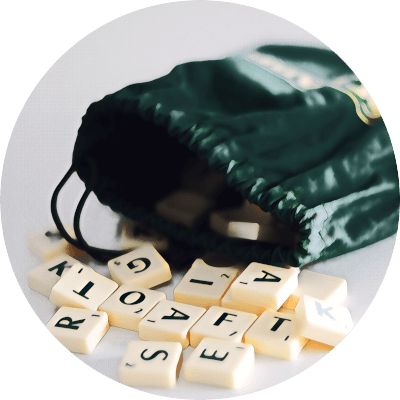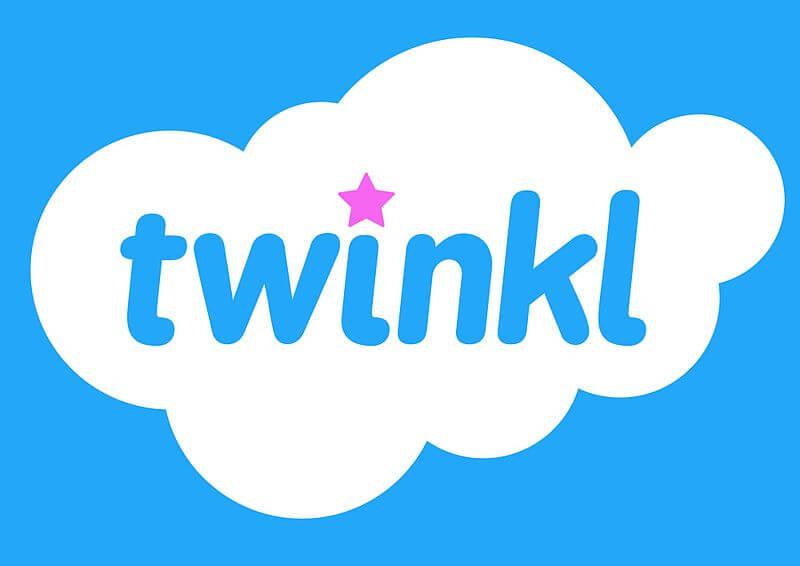In this article, we'll explore the best techniques to build your French vocabulary, including:
Using flashcard apps like Anki and Memrise
Interactive word lists and activities from ExploreFrench’s Word Builder
Reading and listening to French books and audiobooks
Additional techniques like mnemonics, context-based learning, and writing exercises
Flashcards Apps
Spaced Repetition for Long-Term Retention
One of the biggest challenges in learning vocabulary is forgetting words too quickly. This is where Spaced Repetition Systems (SRS) come in—an approach backed by cognitive science that helps move information from short-term to long-term memory. Research on Ebbinghaus’ Forgetting Curve shows that without systematic review, we forget nearly 50% of new information within a day and over 80% in a month. However, when we review words at strategic intervals (just before we’re about to forget them), retention improves dramatically. Flashcard apps like Anki, Memrise, and Quizlet use this principle to make learning more efficient and time-effective.
By integrating images, audio, and example sentences, you engage multiple senses (visual, auditory, contextual), which reinforces memory even further. When combined with real-world usage, spaced repetition ensures that new words become part of your active vocabulary, not just something you recognize passively.
Best Flashcard Apps for Learning French
Anki – Highly customizable, uses spaced repetition, supports images, audio, and example sentences.
Memrise – Gamified learning with audio and video clips from native speakers.
Quizlet – Great for self-created decks with various learning modes.
How to Use Flashcards Effectively
Use images & example sentences instead of translating words directly.
Say the word out loud when reviewing the card.
Create thematic decks (e.g., food, travel, emotions) instead of random word lists.
Set a daily goal and stick to it (e.g., 20 new words per day).
Tip: Practice your vocabulary right before bed to boost retention! Studies show that the brain absorbs and consolidates new words better during sleep. And it works for me!
Tip: Combine flashcards with real-world exposure (TV shows, books, conversations) for maximum retention!
Word Lists
& Interactive Language Activities
Memorizing vocabulary in isolation is ineffective—our brains learn best through patterns, categorization, and interaction. That’s why ExploreFrench’s Word Builder (Vocabulary section) provides a multi-sensory approach to learning words:
► Color-coded word lists make gender distinctions (masculine/feminine) more intuitive.
Studies in cognitive psychology suggest that color association enhances memory recall.
► Interactive exercises such as matching games, letter-reordering games, fill-in-the-gap activities,
and listening tasks help engage different learning styles (kinesthetic, auditory, and visual).
► Contextual learning improves retention—when we see words used in different situations,
they become easier to recall in conversation.
Research on dual-coding theory suggests that combining visuals with text (like associating images with words or hearing pronunciation while reading) significantly improves recall rates. This is why ExploreFrench’s interactive approach works so well, especially when used alongside flashcards for spaced repetition.
ExploreFrench’s Word Builder (Vocabulary section) is a powerful resource that helps you:
Learn 5,000+ French words
(across 150 topics and three levels of difficulty)
Distinguish gender easily with color-coded word lists
(red for feminine, blue for masculine)
Test your vocabulary with 600+ interactive exercises
(matching words, reordering letters, filling the gaps, etc.)
Reinforce words with audio recordings by a native speaker
(all words are read by myself)
How to Use Word Builder Effectively
First, study the word lists and listen to pronunciations.
Then, use interactive quizzes to test yourself.
Add the words you struggle with to Anki or Memrise for long-term review.
Return to the activities every few days, then every few weeks, to strengthen memory.
Tip: Word Builder works perfectly alongside flashcards, helping you engage with words in different ways (visual, auditory, interactive), making them easier to remember!
Read Books
& Listen to Educational Audiobooks
One of the most effective ways to acquire vocabulary is through comprehensible input—a concept developed by linguist Stephen Krashen. His Input Hypothesis suggests that exposure to language slightly beyond your current level (i+1) accelerates learning without requiring conscious effort. Reading and listening provide this natural exposure in a way that is contextual and engaging. Instead of memorizing isolated words, you see how words interact in real-life structures, which strengthens both understanding and recall.
ExploreFrench’s graded readers & authentic readings are designed specifically for learners, offering:
► Parallel English translations to bridge comprehension gaps (graded readers).
► Key vocabulary highlighted in the margins,
so you don’t have to stop reading to look up words (authentic readings).
Meanwhile, the audios help learners train their ears for real spoken French, reinforcing vocabulary through repetition and natural phrasing. Combined, reading and listening build a strong foundation for fluency, making vocabulary stick in your mind more effortlessly.
Why Reading & Listening is Essential for Vocabulary Learning
Words appear in context, making them easier to remember.
You see grammar structures naturally without memorizing rules.
Repetition in stories reinforces vocabulary effortlessly.
Listening improves pronunciation and helps recognize spoken words faster.
Graded Readers (Beginner to Intermediate)
If you're a beginner, graded readers are the best way to start.
ExploreFrench’s graded readers come with:
Parallel English translations for quick understanding.
Key vocabulary highlighted & explained in the margins.
Simple sentence structures to help you progress naturally.
Tip: ExploreFrench new graded reader "A New Life in France" (A1-level) follows two families as they adapt to life in France, introducing useful everyday vocabulary, with words, structures and tenses adapted to your level.
Authentic French Audiobooks
For more advanced learners, authentic French books help bridge the gap between textbook French
and real-world usage. ExploreFrench authentic readings include:
Classic French literature, fiction and non-fiction books, tales and fables.
Key vocabulary translated in the margins to help with comprehension.
Professional native French recording for better listening skills.
How to Use Audiobooks Effectively
Listen first without reading to train your ear.
Read along while listening to match pronunciation and spelling.
Pause and write down key new words (or highlight them in the text).
Repeat sections until you understand them fully.
Pay attention to tenses using the color-coding system to recognize verb endings.
Try to understand why certain tenses are used in different contexts.
Tip: Combine audiobooks with flashcards to reinforce new words in different ways!
Tip: Revisit the book or listen to the audiobook again after a few weeks to track your progress and notice how much more you understand!
Other Powerful Strategies
To Learn Vocabulary
If you’ve ever wondered why some words stick while others seem impossible to remember, the answer lies in how our brains store and retrieve information. Vocabulary acquisition is not just about memorization—it’s about meaning, emotional connection, and frequency of use. The Depth of Processing Theory (Craik & Lockhart, 1972) states that the more meaningful a word is to you, the better you will remember it. This is why mnemonics, storytelling, and personalization are so powerful.
Additionally, writing, speaking, and daily exposure force your brain to actively retrieve words, reinforcing pathways in your long-term memory. The Production Effect (the idea that saying or writing words improves recall) is why keeping a vocabulary journal, speaking with partners, or even thinking in French helps words become second nature. By combining multiple learning strategies—mnemonics, journaling, immersion, and conversation—you build a richer, more active vocabulary, allowing you to use new words with confidence instead of just recognizing them passively.
► Use Mnemonics & Associations
Creating funny or vivid images in your mind helps words stick.
Example: "La grenouille" (frog) → Imagine a green oil (sounds like "grenouille") on a frog!
► Keep a Vocabulary Journal
Write new words in context instead of isolated lists. Example:
"chien = dog"
"J’ai vu un chien dans la rue aujourd’hui."
► Watch TV series & TV Shows in French
Sitcoms life Friends (in French) or French TV series are better than films/Netflix series
Use subtitles in French instead of English.
Write down common expressions from dialogues.
► Speak & Write in French Daily
Try journaling in French every morning.
Join language exchange apps like Tandem or HelloTalk.
Conclusion:
What's the Best Way to Learn Vocabulary?
The most effective method is a combination of techniques:
Flashcards → For memorization & spaced repetition
Word Builder (ExploreFrench) → For lists and Interactive learning & exercises
Books & Audiobooks (reading, listening) → For contextual learning & reinforcement
Daily exposure (listening, writing, speaking) → For natural absorption
By combining these strategies, you’ll retain words long-term,
use them naturally in conversation, and make learning fun & engaging.
Ready to build your French vocabulary?
Check out Word Builder & Audiobooks on ExploreFrench.com

